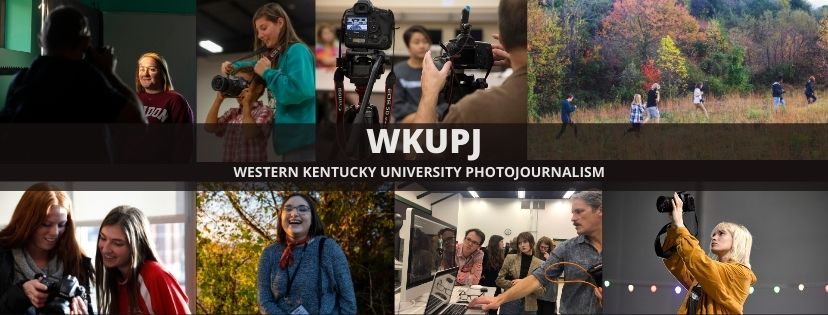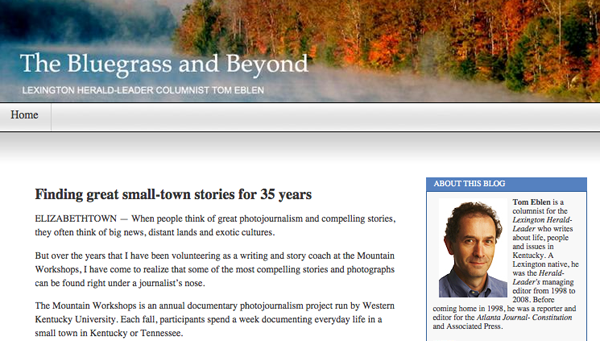Finding great small-town stories for 35 years
ELIZABETHTOWN — When people think of great photojournalism and compelling stories, they often think of big news, distant lands and exotic cultures.
But over the years that I have been volunteering as a writing and story coach at the Mountain Workshops, I have come to realize that some of the most compelling stories and photographs can be found right under a journalist’s nose.
The Mountain Workshops is an annual documentary photojournalism project run by Western Kentucky University. Each fall, participants spend a week documenting everyday life in a small town in Kentucky or Tennessee.
The workshop began when I was a WKU student. A few of my photographer friends and two of their professors went to the mountains to document the last one-room schoolhouses in Kentucky.
In the 35 years since then, the Mountain Workshops has grown into a major, nationally known training program in still and multimedia photo journalism and picture editing.
This year’s workshops came to Elizabethtown in late October. There were 70 “students” who had paid to brush up on their storytelling skills using photographs, video, words and audio. Some were students at WKU and other universities; others were working professionals at newspapers ranging in size from small weeklies to USA Today.
Their coaches and the support staff were an all- volunteer corps of photojournalists, writers and editors from across the country. This year’s faculty included Jahi Chikwendiu, a Lexington native who has photographed extensively in Africa and the Middle East for The Washington Post; Karen Kasmauski, who has photographed more than 25 stories for National Geographic magazine; and Pulitzer Prize-winning photojournalists Rick Loomis of the Los Angeles Times and Mark Osler of the now- defunct Rocky Mountain News.
This was my 12th workshop during the past 18 years, and others have been coming even longer. Some regulars, including Loomis and me, are WKU grads. But others had no connection to Kentucky before they started coming to the workshop and fell in love with the experience. They include Mick Cochran, director of photography at USA Today, who teaches picture editing; and fellow writing coach Lynne Warren, a former National Geographic writer and editor.
Now that many of Kentucky’s small towns have been covered, the workshops have started going to larger towns. Besides, 150 people need a lot of motel rooms — not that anyone spends much time in them. With so much to do in a week, everyone works from early in the morning until early the next morning.
Three days before the workshops began, a volunteer technical crew turned a vacant industrial building into a state-of-the-art news-gathering and education center with dozens of borrowed computers and miles of Ethernet cable.
The workshop starts at noon Tuesday, when participants literally draw a story assignment out of a hat. The assignments are little more than leads, though, and participants spend the next four days getting to know their assigned subjects — figuring out what their stories are and how to tell them in pictures, words and sometimes audio and video.
By Saturday night, this around-the-clock learning experience has produced a Web site, about 70 picture and video stories, a framed gallery show and a book that will be published in a few months
The professional journeys that students make between the first and fifth days is amazing. And the faculty and staff always seem to learn as much as the students. The collective effort is a remarkable snapshot of a town.
I always come home from the workshops exhausted — and exhilarated. It is my annual reminder of the power of storytelling. And as digital technology advances, creative people find new and powerful ways to use it to tell stories.
“The Mountain Workshops reaffirms my belief in the value of age-old and priceless community journalism,” said Gordon “Mac” McKerral, a fellow writing coach and past national president of the Society of Professional Journalists.
“It’s not so much about the people the Mountain Workshop stories focus on — the barbers, the single father, the mother of an autistic child or the book mobile driver — but about how those people collectively tell a story about the world we live in,” McKerral said. “An inherently good world filled with people who do special things while not believing they are special at all.”

